Upper Hunter by-election: Nat Dave Layzell’s win sparks warning on net zero emission agenda
After his party won the Upper Hunter’s contest on coal, an outspoken federal Nationals Senator has urged colleagues not to ‘play footsie with woke concepts’.
NSW
Don't miss out on the headlines from NSW. Followed categories will be added to My News.
It was an upper cut delivered by blue collar coal workers in the Upper Hunter where 80 per cent of voters backed candidates who supported their industry, sending a message to federal Nationals, Matt Canavan said on Sunday.
The former resources minister said the message from the contest was don’t “play footsie with woke concepts like net zero emissions.”
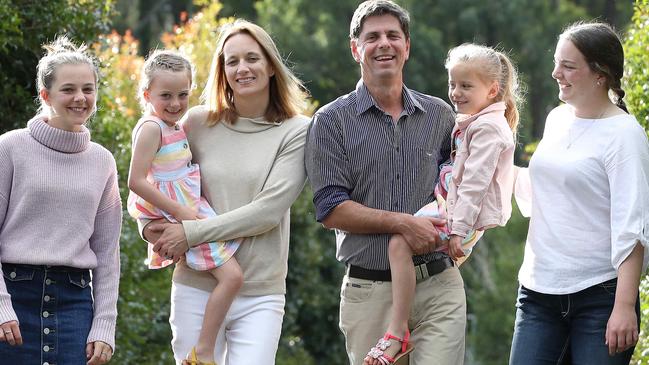
Labor conceded defeat to Nationals candidate Dave Layzell on Sunday, with party leader Jodi McKay declaring Labor needs to address “what people in Western Sydney want” rather than focus on “minority issues” of the inner city elites.
The by-election vote count yesterday afternoon showed 78 per cent of voters cast ballots for parties that have expressed support for coal mining jobs – the Nationals, Labor, One Nation, and the Shooters, Fishers and Farmers party. A spate of independents running in the seat were also supportive of mining.
Anti-coal independent Kirsty O’Connell – backed by former Prime Minister Malcolm Turnbull – received just 8.6 per cent of the primary vote.
“We all knew before the election that the people of Upper Hunter want a job, and they get jobs from coal mining,” Mr Canavan said.
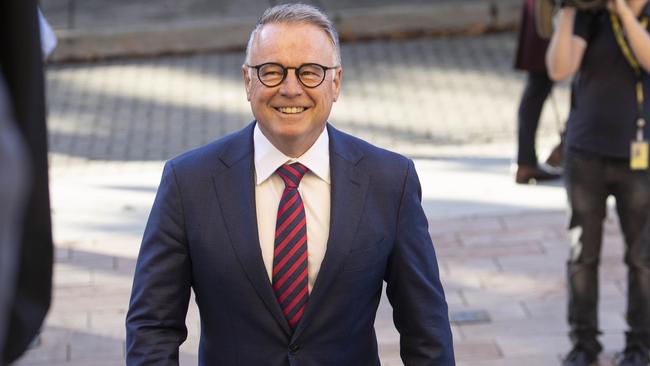
His view was shared by outspoken Labor backbencher Joel Fitzgibbon, who said Labor was punished by voters who were sceptical about the party’s position on mining.
“It’s not enough to whisper support for coal mining,” he told The Daily Telegraph.
“Voters remain sceptical of our support for the coal mining industry, if not suspicious.”
Mr Fitzgibbon warned that having “reinvented itself as a progressive party,” Labor was at risk of losing its voter base of blue collar workers.
The Upper Hunter result was a “warning sign to Labor that we’re in structural decline,” he said.
A LEADER’S REGRETS
An embattled Ms McKay on Sunday conceded that Labor had failed to connect with voters who care about the government creating and protecting jobs, schools, and hospitals.
“They don’t care about those issues that sit off to the side that sometimes we’ve focused on,” she said.
Ms McKay said her party had started to “focus on what people in Western Sydney want,” suggesting the policy shift has caused “a huge tussle internally”.
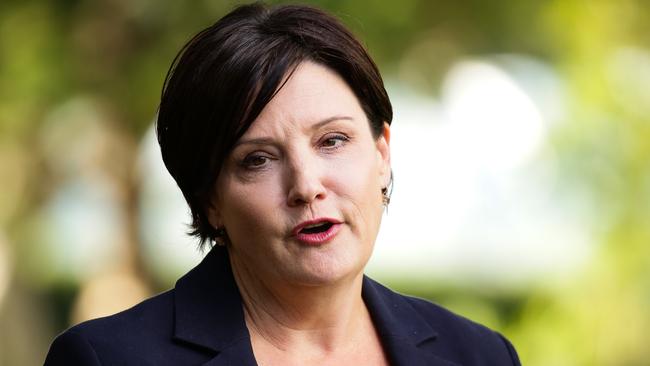
“We’re the party of workers, workers aren’t voting for us, why aren’t workers voting for us?” she said.
The Nationals had received about 31 per cent of the primary vote as of yesterday afternoon.
Mr Canavan said the result was a “big lesson” that his party needs to be “loud and proud in support of great Australian industries like coal,” because “two thirds” of people voted for other candidates.
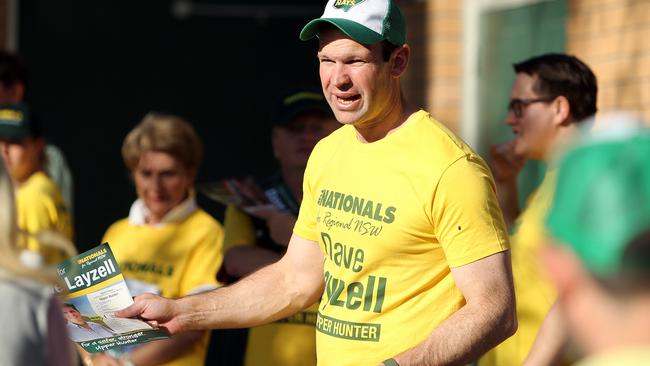
“We’ve got to make sure we don’t play footsies with woke concepts like net zero emissions, or not supporting coal-fired power,” he said.
Labor MPs yesterday identified a handful of NSW electorates that could also be at risk at the next federal election amid a focus from the government and an increase in support for One Nation.
There is concern that Labor could lose working class votes to One Nation in Meryl Swanson’s seat of Paterson and Pat Conroy’s seat of Shortland.
VOTERS SEE THE LIGHT
Klintyn Dawson, a 42-year-old senior supervisor at the Bulga Open Cut mine in Mount Thorley said he was “not at all” surprised that voters backed candidates who supported the coal local mining industry.
“It’s a pivotal part of the communities up here, the region, and also Australia as a country,” he said.
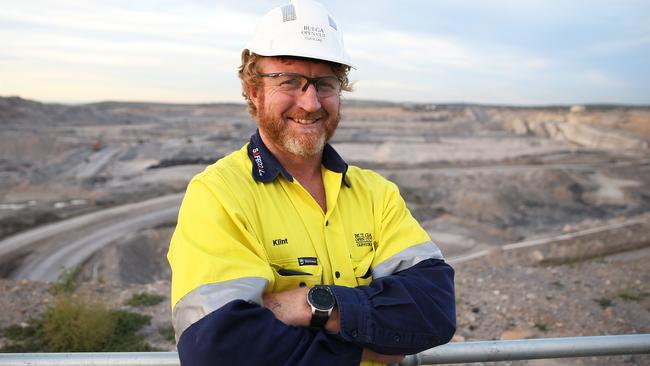
Mr Dawson said that as much as some people protest fossil fuel generation, “everybody still turns a light switch,” with that electricity largely coming from coal.
“It’s such a long proud history in this area, it props up so much of the country,” he said.
NEW NAT SETS AN AGENDA
Mr Layzell yesterday listed retaining jobs in the Upper Hunter and ensuring mining royalties are reinvested into the region as some of his priorities when he gets to work.
“I kept my eyes closed to anything beyond six o’clock on May 22, now my eyes are open and I actually have to write the list and get down to doing business,” he said.
His wife Rachel, with whom he has four daughters, said she was “relieved” at the win, saying being an MP was “something (Mr Layzell) has wanted for a very long time”.
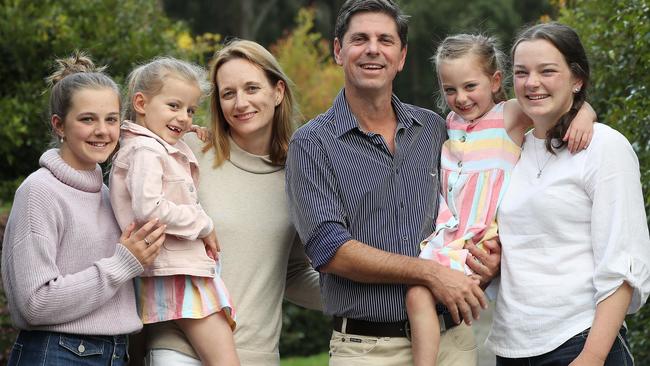
“I did one campaign in a council election in Dungog where we put our signs up and that was about it, I don’t think I even took a day off work back then whereas this has been an all intensive campaign” Mr Layzell said.
“It’s totally surreal, it’s been an emotional rollercoaster”
Mr Layzell said he still feels out of his comfort zone but found the campaign exhilarating.
“It’s been just bizarre, we are looking at a newspaper article and there’s a picture of my daughter … the whole thing has just been amazing,” he said.
Mr Layzell’s wife Rachel said she was relieved to see her husband win after throwing all their hopes into the campaign.
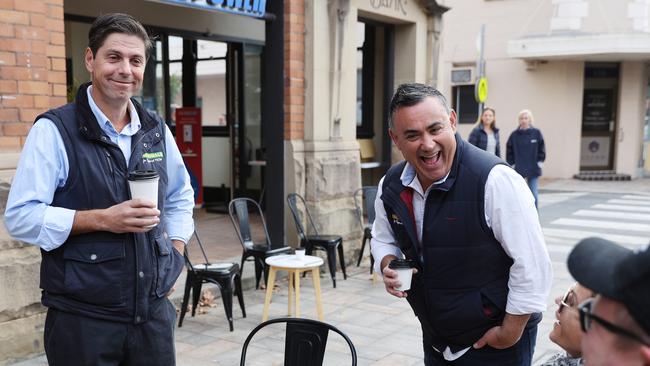
“I’m relieved more than excited because I didn’t want to see him fail,” Mrs Layzell said.
“It’s something he has wanted to do for a very long time and the opportunity came up a lot earlier than we anticipated,” she said.
Mrs Layzell said their daughters Emily, Mia and twins Indie and Ashley were proud of their dad and excited to see him in question time.


